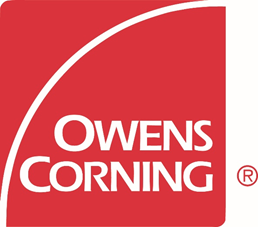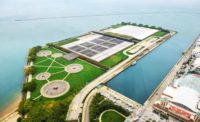Commercial buildings deemed “mission critical” demand roofs that go beyond simply covering people, products and processes. As part of the high-performing enclosure, mission critical roofs must withstand the pressures posed by time and the elements, often for many decades. The longevity of cellular glass insulation has long been relied on by some of the world’s most interesting roofs. Below, we consider five additional properties that support the performance of Owens Corning FOAMGLAS® cellular glass insulation installed in mission critical roofing applications.
1. Reliability: While mission critical buildings serve many purposes—from data centers to water treatment—a common denominator is reliability. Redundant roofing systems provide a back-up level of protection against a failure in the roofing membrane and help guard against the logistical and financial consequences involved in retrofitting a roof.
The Museum of the Acropolis in Athens, Greece offers a good example of cellular glass insulation’s performance in action. The cube-shaped museum houses treasures from pre-historic times through late antiquity while allowing modern day visitors to observe ongoing archaeological research. The FOAMGLAS® insulation installed in the flat roof is placed below a layer of hot bitumen and two layers of waterproofing membrane reinforced with polyester material and covered with an embedded protection course. The roof’s surface is connected with a FOAMGLAS® insulation serrated plate, screw and rubber air- and water-sealing gasket ring to a support structure underneath non-transparent glass. The result is a high-performing roof that provides redundant, reliable protection for a mission critical structure housing irreplaceable treasure.
2. Compressive strength: Commercial rooftops are often home to massive installations of mechanical systems and equipment. The compressive strength of cellular glass insulation allows it to stand up to immense loads. In fact, the lowest compressive strength for cellular glass insulation is in the 50-70 psi. range, and can be much higher without deflection under load. A few applications well suited for cellular glass insulation include plaza decks and sites housing mechanical equipment. One of the world’s most important paper mills, the Stora Enso mill in Belgium, uses FOAMGLAS® insulation on 22,000 m2‑ of flat roof.
3. Non-combustible: Cellular glass insulation is made with a unique chemistry and manufacturing process. Sand serves as the primary ingredient along with limestone, soda ash and other ingredients. Melted into a molten glass and cooled, the cooled glass is crushed into a powder, then heated into an oven that forms a glass matrix of insulating bubbles. As a glass product, FOAMGLAS® insulation does not burn, spread fire, or present a fire risk in the building structure.
4. Dimensionally stable: Comprised of pure glass, FOAMGLAS® insulation has a very low coefficient of thermal movement that is comparable to concrete and steel. This dimensional stability resists warping and shrinking, even as temperatures fluctuate from season to season. Installed in commercial roofs, cellular glass insulation serves as a stable foundation for the applied roofing membrane. Over time, even the strongest membrane will be subject to deterioration from constant flexing and stress. Cellular glass installed with sealed joints delivers an innately stable solution to support the membrane and guard against leaks. The stability of FOAMGLAS® insulation was displayed in 2015 when the roof of the James W. Jardine Filtration Plant on Chicago’s shoreline was replaced. When roofers removed roofing deck materials from one of the world’s largest water treatment plants, they discovered the FOAMGLAS® insulation installed more than a half-century earlier was intact without deflection or damage.
5. Impervious to moisture: Both liquid and vapor moisture pose a threat to mission critical buildings. While nature brings the risk of humidity and rainwater to the rooftop, internal processes also create vapor drive that must be managed from the inside. The 100 percent glass nature of cellular glass is impervious to moisture and provides a high degree of protection, even in the event of a membrane rupture.
Along with longevity, the five performance attributes described above, help explain why FOAMGLAS® cellular glass insulation continues to be trusted decade after decade for mission critical applications around the globe.
© Owens Corning 2021. All rights reserved.




